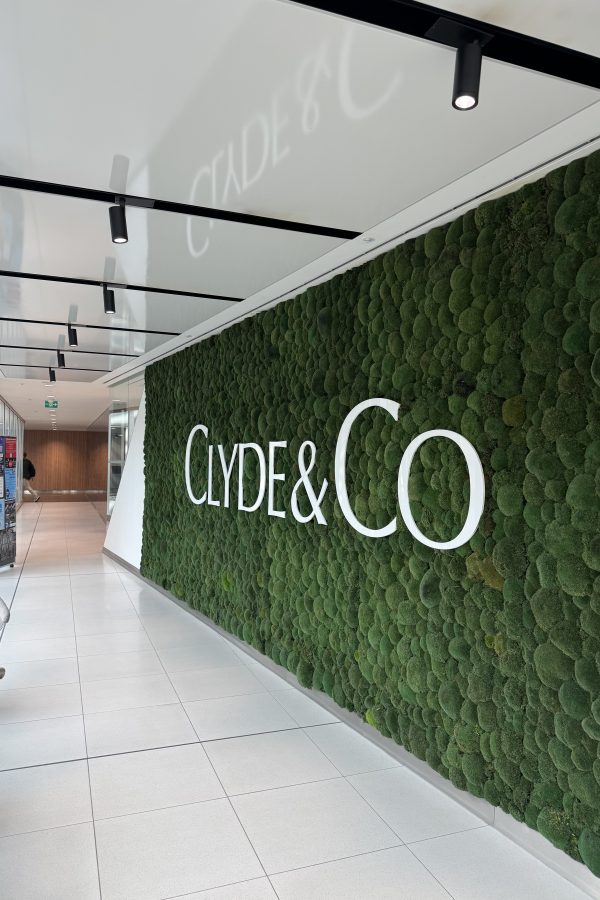Fladgate’s wellbeing strategy, which combines gamification with the promotion of healthier lifestyles, was celebrated for encouraging behavioural changes at this year’s People in Law Awards. Ashleigh Webber finds out more.
The workplace wellbeing market has boomed in recent years, even before the coronavirus pandemic highlighted how vital it is for organisations to support employees’ mental and physical health and wellbeing. According to the Global Wellness Institute, the workplace wellbeing industry was worth $48bn (£36.5bn) in 2017 and is projected to grow to $66bn by 2022.
The sector, the Institute suggests, is growing rapidly as organisations attempt to do all they can to address the cost of work-related stress, illnesses, disease and employee disengagement that cost the global economy roughly 10-15% in economic output each year.
But not every organisation, especially smaller law firms, are able to spend vast amounts of cash on employee wellbeing interventions. Sometimes, empowering employees to make decisions about how best to achieve a healthier lifestyle is the most effective method – and can be less costly.
Taking charge
This approach was taken by Fladgate, which won Best Health & Wellbeing Initiative among firms with fewer than 750 staff at the 2020 People in Law Awards. It chose a solution that would empower employees to take charge of their own wellbeing journey, while addressing the four pillars of its corporate wellbeing strategy: mental, physical, financial and social.
In 2019 the firm introduced Yulife, an app that brings together gamification and wellbeing promotion. It is linked to its existing group life insurance products and encourages staff to complete activities beneficial to their wellbeing to earn ‘Yucoin’, which can be exchanged for vouchers at major brands including Asos or Amazon.
“One of our principal drivers at Fladgate is to provide a personal approach to work and to give people opportunities to make their own choices about what’s helpful to them and what’s not,” says Ruth Elliot, Fladgate’s director of HR and business services. “This project fed very much into that as it’s an app you can use to drive better physical and mental health in ways that employees see fit.”
Rewards
Employees earn Yucoin for steps walked or minutes spent on meditation or mindfulness, as well as various challenges.
The app was launched a few weeks before Fladgate’s firm-wide “Tour de Fladgate” charity event, which saw teams compete against each other on static bikes and rowing machines. They were rewarded with Yucoin for their participation and the activity raised £9,000 for Fladgate’s selected charities.
“Engagement with the app is very high and we’ve found that new joiners are getting involved with it very early on,” says Sophia Tucker, HR adviser at Fladgate, who has responsibility for the firm’s wellbeing initiatives. “We try to have a broad wellbeing offering so something is there for everyone. We’re always open to ideas from our people.”
Participation in the activities promoted on Yulife is high across functions and hierarchy, partly driven by a leaderboard which both encourages healthy competition and inspires Fladgate’s people to lead healthier lifestyles.
The potential impact on employees’ health and wellbeing has been impressive. Fladgate’s people are walking an average of around 9,000 steps per day, compared with a UK daily average of between 3,000 and 4,000, with walking challenges proving the most popular Yulife activity.
The average meditation minutes recorded by Fladgate employees over the last 90 days is 181.7 minutes per week per employee, compared to the YuLife average of 123 minutes.
“It fits very well into our approach around wellbeing. We’re not a law firm with vast amounts of cash, so what we’ve been doing is trying to find things that work for us and our people and support them in a cost effective way. Yulife works very well in that respect,” says Elliot.
Shift in priorities
Although Yulife covers all four pillars of Fladgate’s wellbeing strategy, the firm operates numerous other initiatives to help meet the health and wellbeing needs of its multi-generational and diverse workforce. It has financial wellbeing seminars that run every quarter, a cycle-to-work scheme, regular mental health seminars, an employee assistance programme and access to virtual GP appointments, to name a few.
Like many firms, some of its wellbeing priorities have shifted in light of the challenges employees face because of the Covid-19 pandemic.
“We’re introducing resilience training at the end of this month, which will be very focused on a neurological perspective, covering how your brain deals with stress rather than just providing tips to deal with it,” Elliot says.
The virtual sessions will cover individual resilience and how managers can promote resilience among groups.
“As people’s priorities change [post-pandemic], we will want to reflect those in what we’re offering,” says Elliot.
“We’re currently revamping our vision and values and asking staff what they want to see from them, as well as asking staff how they’ve got on during lockdown. We have met virtually with each member of staff to see how they’re doing.”
Generational differences
She says the legal sector is facing a major challenge in making it a profession people want to stay in, acknowledging that many people coming into law have different values to the generations that came before them.
“The idea of just throwing money at people is no longer attractive to younger generations and we need to create a new environment where people want to work,” explains Elliot. “To motivate millennials and generation Z, you need to provide careers where you feel like accessing influence very quickly, as opposed to the traditional culture where you had to wait for a partner to retire and hand over their clients. Wellbeing feeds into that.”
Finally, with work likely to be split between home and the office after Covid-19 recedes, Fladgate will be looking at how it can encourage its people differentiate work from their home life. Gone are the days where working was only possible at certain times or in a set environment – work emails and IT systems can now be accessed 24/7, and the line between work and home has blurred even further this year.
Elliot says: “There needs to be some education about protecting people’s overall wellbeing and we need to empower individuals to make choices about when and where they work, where to draw the line, and help them recognise that it’s important to take that personal responsibility.”










